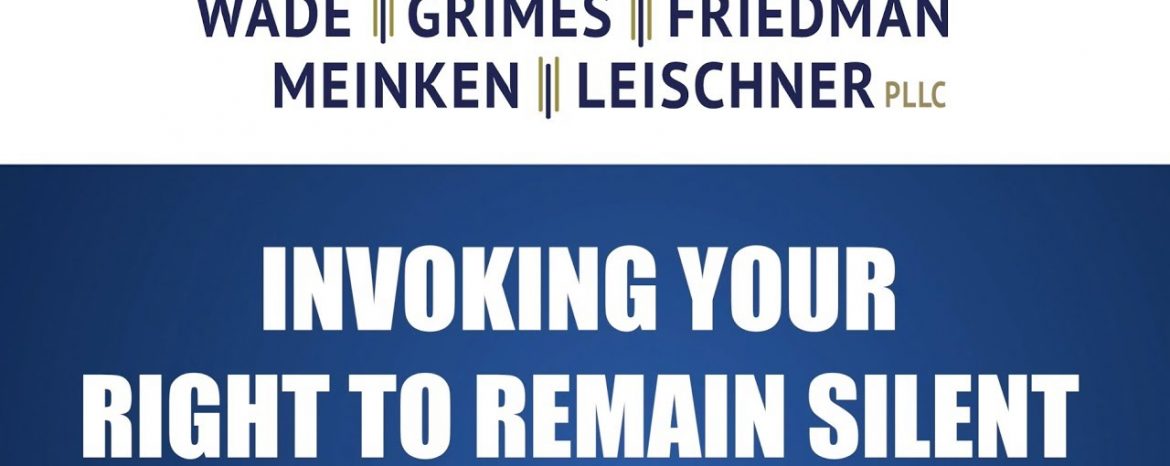Everyone’s heard the TV-popularized phrase: “You have the right to remain silent”. It’s the Miranda rights statement, intended to prevent self-incrimination that says you are not required to speak with law enforcement if arrested. Attorneys at Friedman, Grimes, Meinken & Leischner PLLC weigh in on invoking your 5th Amendment right to remain silent, on this week’s FAQ Friday.
Do I have to speak to the police?
While no one is legally required to cooperate with the police, many people choose to speak with them anyway. However, in speaking to law enforcement, you risk providing false information, which is grounds for being charged with filing a false police report or obstruction of justice.
It might not be that you yourself have done anything wrong. It could be that you don’t want to get a friend of yours in trouble. But you’re the one who’s going to end up in hot water. Even if you think you can get away with it and that law enforcement is not going to figure it out, you have to remember that they are going to speak with 15-20 other people about the incident.
When do Miranda rights apply?
There are two things required for Miranda to apply:
- You have to be in custody, something akin to a full custodial arrest.
- You have to be questioned by law enforcement.
Even if you are in custody, unless you are also being asked questions that are intended to lead to an inculpatory response, law enforcement is not required to read you Miranda.
Many clients say ‘I was placed under arrest and [the police] didn’t read me my rights.’ They think from TV that somehow that case is going to get thrown out. That’s not the way it works,” she says.
Another situation where issues can arise is when someone is being questioned when they are not in custody. For example, let’s say a police officer comes to your house and knocks on the door, asking about a person of interest in their investigation. Often, people feel uncomfortable turning the police away even though it’s their right, so they start to comply and speak with the officer. It can feel natural for people to lie to minimize their knowledge because they don’t want to get involved. But, again, if you start giving false statements, the next thing you know you could be charged with obstruction of justice.
The best thing to do is to politely tell law enforcement that you’d be happy to speak with them but that you need to consult with your attorney first. Give the police your lawyer’s card so they can set up a meeting. Then, let your lawyer know about the situation right away so together you can determine whether it makes sense for you to speak law enforcement or not.
Related Content:
- What Are The Benefits of Hiring a Former Public Defender?
- How to Get Your Record Expunged in Virginia
- New Virginia Cooperation Statute Allows for Post-Conviction Sentence Reductions

